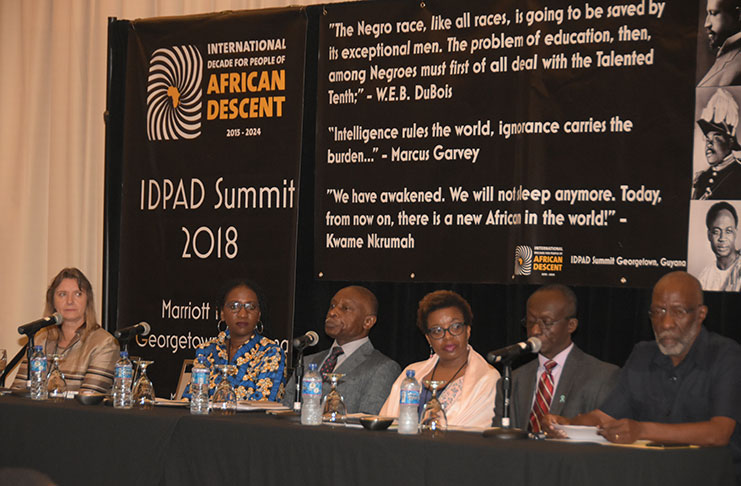Address of His Excellency Brigadier David Granger President of the Cooperative Republic of Guyana to the Inaugural General Meeting of the Cooperative Credit Union of the International Decade for People of African Descent Assembly ─ Guyana 2020.06.02
Cooperative credit unions and economic empowerment
The General Assembly of the United Nations designated the decade 1st January 2015 to 31st December 2024 as the International Decade for the People of African Descent [via Resolution 68/237 of 23rd December 2013] and adopted a Programme of activities for the implementation of the International Decade for People of African Descent [by Resolution 69/16 of 18th November 2014].
Given that the Decade is expected to last 3, 652 days, 1,979 days have elapsed and 1,673 days remain. The mid-point of the decade passed on 31st December 2019.
The ‘International Decade’ acknowledges that Africans were the victims of the greatest crime against humanity and continue to suffer from dispossession, discrimination and intergenerational poverty. The ‘International Decade’ recognises that people of African descent have not yet fully overcome the legacy of colonial underdevelopment which continues to contribute to their present condition.
The Programme of Activities, proposed by the United Nations, rests on 3 pillars – recognition, justice and development. The ‘Programme’ recognizes that poverty is both a cause and consequence of discrimination. It urged that states should take appropriate steps to: “… strengthen national programmes for eradicating poverty and reducing social exclusion that take account of the specific needs and experiences of people of African descent…”
I proposed a five-point Plan of Action for the International Decade, in my address to the Cuffy 250 Forum in August 2016. I urged that the ‘Plan’ include efforts aimed at African economic empowerment.
The registration of a Cooperative Credit Union, by the International Decade of People of African Descent Assembly – Guyana, is a step in the direction of economic empowerment and eradicating poverty. It is in accordance with the objectives declared in the Programme of Activities of the ‘International Decade’ and with the five-point ‘Plan’ which I had proposed in 2016.
Cooperative credit banks existed in British Guiana over a century ago. These institutions first emerged in response to African subsistence farmers’ need for loans.
The ‘old model’ cooperative credit banks catered primarily for small loans for small-scale agricultural production and for meeting basic household and emergency needs. The ‘old model’ did serve the purpose for which it was intended. A ‘new model’ is needed to become an engine of economic development.
History records that Africans embarked on a quest for economic emancipation 182 years ago. They sought a better life for themselves and their children away from the oppressive plantation system.
The Great Village Movement started on 7th November 1839, a mere one year after Emancipation. This initial transaction triggered other purchases and led to the Great Village Movement which has been described as:
“…the most spectacular and aggressive land settlement movement in the history of the people of the British Caribbean and a movement which seemed to one planter in British Guiana to be certainly without parallel in the history of the world!”
More than two out of every three Guyanese still live in villages. Most African-Guyanese still live in over a hundred villages which are the inheritance bequeathed by Emancipated Africans to their progeny. Their descendants, today, protect and promote the economic development of these villages and the livelihood of their residents. Guyanese, still by and large belong to villages.
The early proprietors faced formidable obstacles in their pursuit of economic empowerment, however. They expended exorbitant amounts of cash for the abandoned plantations. This left them exposed to oppressive colonial taxes and unable to meet the expenses of infrastructural development, such as drainage and irrigation.
Water-borne disease such as cholera also took a deadly toll added to which many villagers suffered from economic exhaustion and a lack of financial capital.
African economic empowerment was aided by their willingness to enter ‘collective’ (not ‘cooperative’) ventures and by their proclivity for thrift and savings. Some came together, pooled their resources and purchased, collectively, abandoned plantations on which they established homes, churches and farmsteads.
These were ‘communal’ villages where the property was allocated by agreement in shares. There were, also, ‘proprietary’ villages in which each purchaser owned his own property.
Africans left a proud tradition of frugality and thrift. Their capacity and propensity to save allowed them to overcome the lack of access to capital. Some retained the ancestral tradition of raising funds through informal schemes such as ‘box-hand’ in an effort to circumvent the difficulties in sourcing funds from formal banking institutions.
Savings is a basis of investment. Financial institutions utilize savings to lend. There can be no lending and no investment without savings. Savings, however, were never going to be sufficient to drive economic enterprise after Emancipation. The needs of the peasantry demanded easier access to financial capital.
Africans pioneered cooperative credit banks at the village level in order to raise funds for economic activities. These early cooperative credit banks were patterned after the Raiffeisen Banks of Austria which had come to the attention of James Mc Farlane Corry, the convener of the first Village Chairmen’s Conference and who served as its Chairman from 1904 to 1924.
Corry, at that time, ever serious and studious, became aware of the functioning of ‘Raiffeisen’ banks in Austria. These banks were founded by Friederich Wilhelm Raiffeisen and provided small loans, at low rates, for designated purposes, to worthy members of the German agrarian population.
Corry thought it would be good for local small farmers in British Guiana to have access to similar sources of credit. He brought the idea to the notice of the Village Chairmen’s Conference in August 1904, admitting that he knew nothing of how such banks actually functioned.
Certain members of Victoria Village modified the proposed plan to suit their local conditions and, in August 1905, started the first local Co-operative Credit Bank. Rose Hall and Buxton Villages, among others, followed. The banks were predicated on self-help and grassroots membership.
The fortunes of the cooperative credit banks, however, were tied to the economic fortunes of their members, principally, poor, peasant farmers. Agricultural crop failures – caused by droughts and floods – resulted in many of these farmers being unable to pay their debts to the banks.
Cooperative credit banks collapsed by 1912, but were revived in 1914 under an arrangement which allowed for government loans and legislation was passed to regulate the banks’ supervision, management and shareholding. More prudential lending was employed during this period of restoration. These changes had a profound impact on cooperative credit banks:
– the number of such banks increased from 3 in 1915 to 27 by 1920;
– the number of shareholders expanded from 280 to more than 9,000 over the corresponding period;
– the banks’ paid up capital expanded more than 100-fold over this period; and
– the banks’ membership was expanded to include non-Africans.
Cooperative credit banks were established across the country’s villages. Banks were established:
– in the county of Berbice (at Abary, Block, El Dorado, Expectation, Hopetown, Lichfield and Skeldon);
– in the county of Essequibo (at Essequibo North, Essequibo South, Leguan, North-West District and Wakenaam); and,
– in the county of Demerara(at Beterverwagting-Triumph, Buxton- Friendship, Canal No. 1 Polder, Den Amstel-
Fellowship, Georgetown, Goed Intent-Sisters, Goedverwagting, Golden Grove-Nabacalis, Mahaicony, Plaisance-Sparendaam, Supply-Mahaica, Vergenoegen, Victoria-Belfied and Vreed-en-Hoop).
Cooperative credit banks did much good work in saving small farmers from loan sharks and assorted money-lenders.
They assisted them to overcome the vagaries and the inevitable difficult periods which afflict peasant farming on the coastland. Cooperative credit unions provided support to households and for small-scale economic ventures.
The early cooperative credit banks were strongly tied to the communities. Their shareholders were drawn predominantly from the working class. They encouraged both lending and savings. They were an instrument of economic empowerment.
These cooperative credit banks were integrated into African communities, their shareholders were broad-based and multi-ethnic and they provided loans, at low interest rates, for economic ventures at the level of the village. Cooperative credit banks encouraged not only lending but also savings.
Cooperative credit banks bequeathed a model of a financial institutions geared towards providing funding for personal, family and household needs and in support of subsistence and small-scale economic activity.
The model, however, never became a major driver of economic enterprise. It is unsuited to the demands of modern competitive industrial and manufacturing business development and needs to be replaced by a new model.
Cooperative credit unions were the successors of the cooperative credit banks. The cooperative credit unions have declined, with only 30 such institutions existing as at October 2019. Credit unions today account for slightly more than 24,000 members with estimated assets of US$28.9M.
The ‘new model’ of cooperative credit unions must become an engine of enterprise development. Cooperative credit unions should graduate beyond catering only for elementary stage of development – the provision of personal and subsistence loans. The ‘new model’, I suggest, should cater for four stages of economic enterprise development:
– traditional or subsistence stage;
– commercial or retailstage;
– industrial or manufacturing stage; and
– internationally-competitive stage
Cooperative credit unions should aim at financing not only small-scale agriculture, agro-processing and craft ventures but also commercial enterprises – the second stage of development. The third stage of development – the industrial stage – would involve the provision of capital for industrial development. The fourth stage would result in cooperative credit union providing support for the production of internationally- competitive commodities.
The ambition of new model should be to provide financial services from the level of the small farmer and household, right up to the level of industry. Financing is needed at the levels of micro-, small- and medium-scale enterprises, particularly in the agriculture and agro-processing sector.
Government has launched a number of initiatives aimed at stimulating these sectors. The G$50M agro-processing plant at Parika, Essequibo Islands-West Demerara Region, was established in March 2020. The investment allows for the processing of 130 kg of produce per hour, benefits some 100 small farmers and provides employment for 20 persons.
The Regional Agricultural and Commercial Exhibitions (RACE) has become a catalyst for economic diversification led by micro, small- and medium scale enterprises. The Rural Entrepreneurial Agricultural Project (REAP) aims to revitalize rural village economies.
The ‘new model’ which I propose, envisages cooperative credits union as financial institutions with increasing assets, reserves, savings and shareholdings. The model is one which would see shareholding and savings widened and with a more diversified lending portfolio. All of this would necessitate legislative and regulatory changes.
The ‘new model’ is necessary for economic empowerment. Its development for the remaining years of the International Decade of People of African Descent.
I urge the International Decade of People of African Descent Assembly – Guyana to consider carefully the adoption of a new model of cooperative credit unions that will not be marginalized within the overall financial sector but which has the potential to compete eventually with the formal financial sector and to stimulate enterprise development at the subsistence, commercial, industrial and internationally- competitive stages.
I commend the International Decade of People of African Descent Assembly – Guyana on the establishment of the Cooperative Credit Union. The credit union is one of the many projects which will be undertaken by the Assembly but it has special significance for local economic empowerment.
I congratulate the Union on its inaugural General Meeting. I wish it every success, beyond 2024 and for decades to come. I thank you.

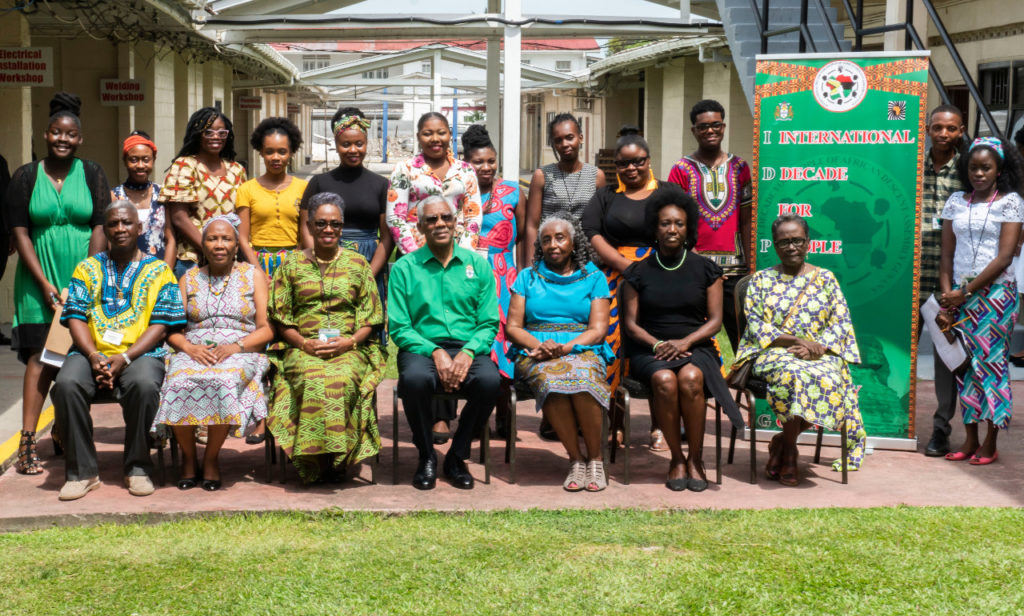
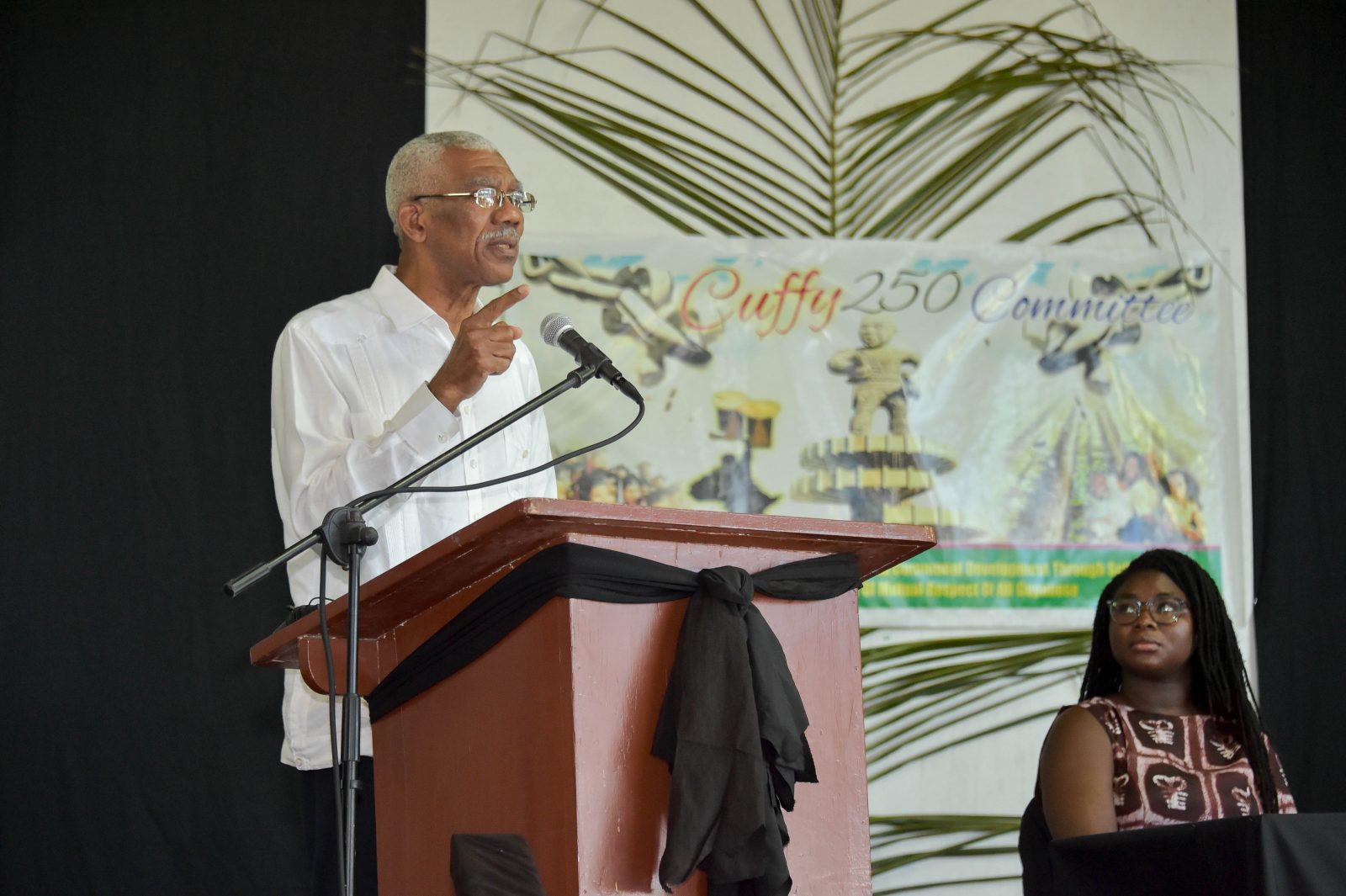
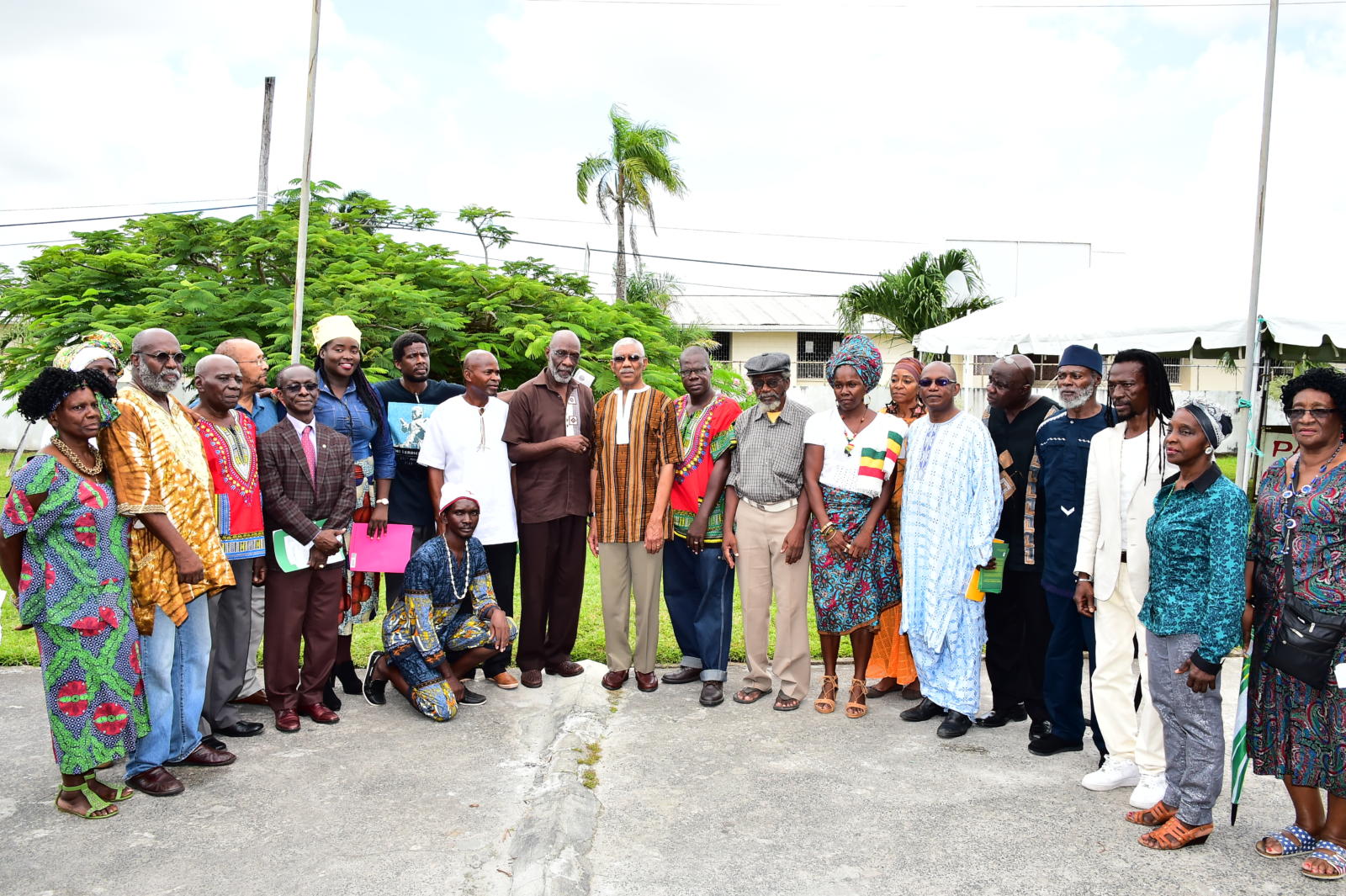

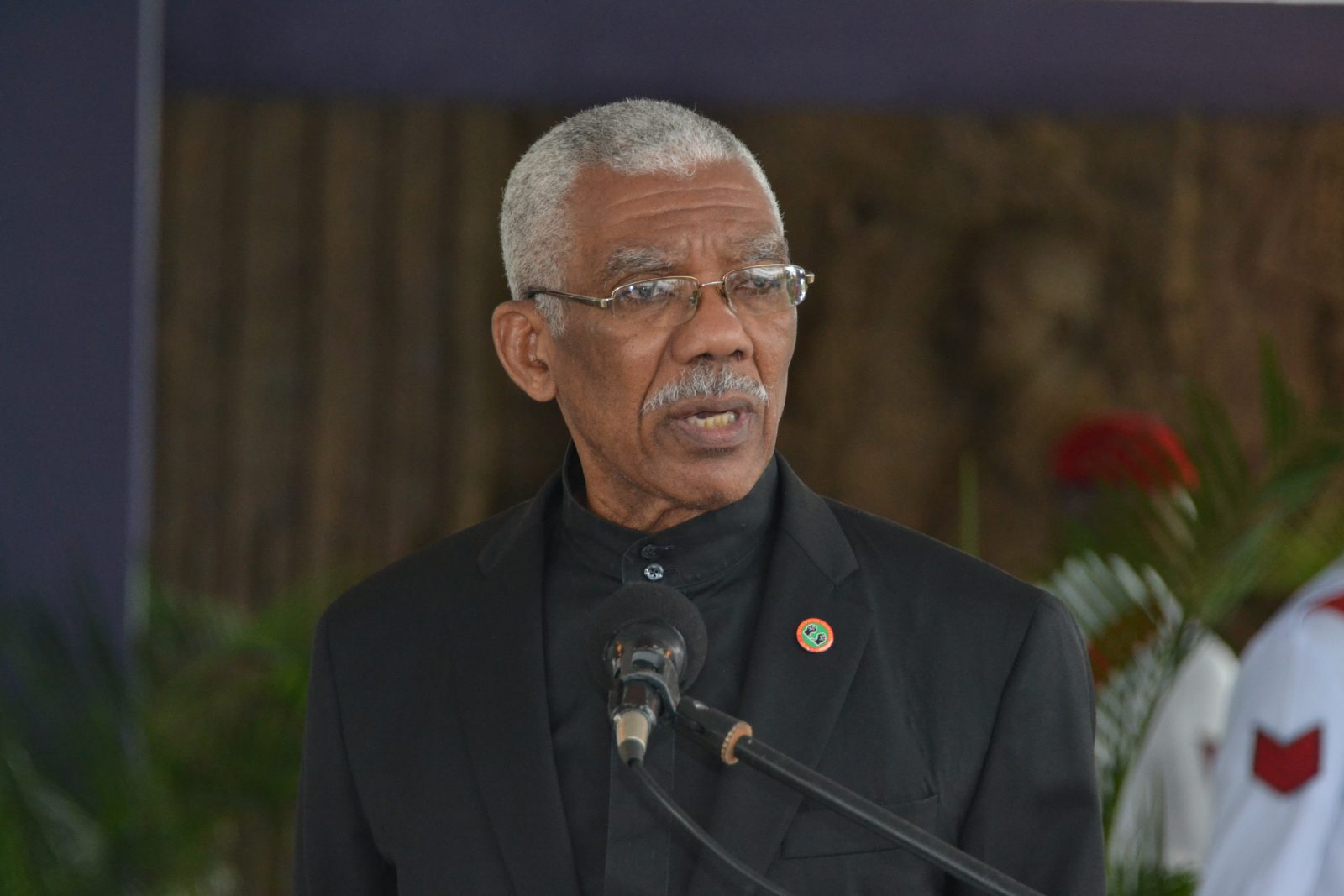

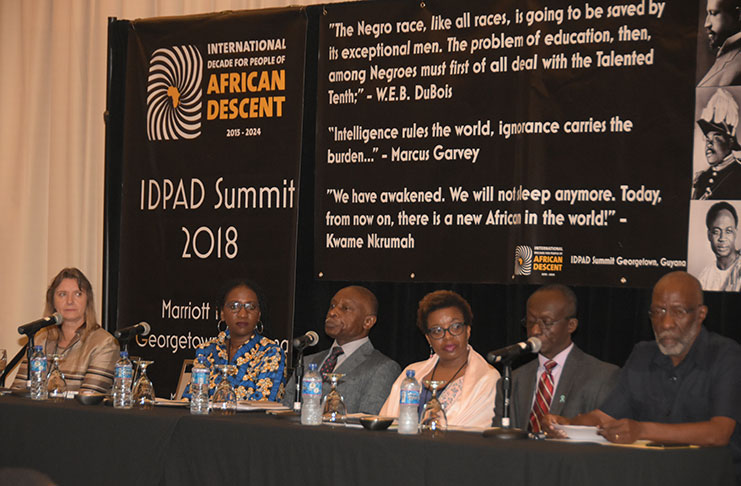
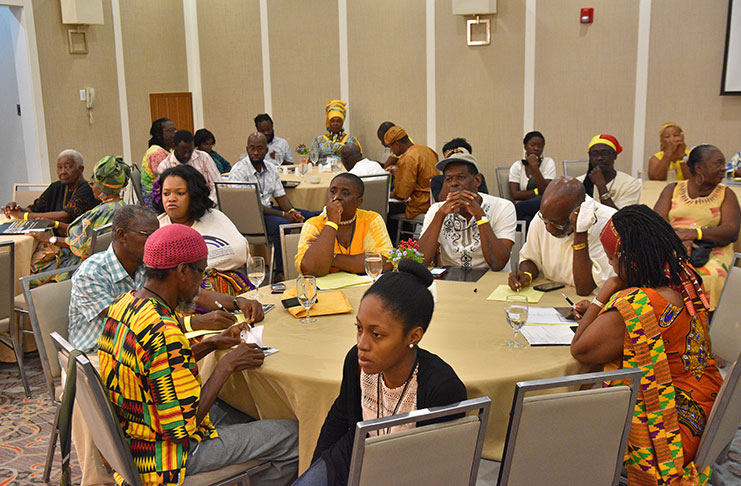
 The topics reported on were: Business and Finance; Health and Wellness; Education and Culture; Human Rights and Geopolitics and Information and Communication Technology (ICT).
The topics reported on were: Business and Finance; Health and Wellness; Education and Culture; Human Rights and Geopolitics and Information and Communication Technology (ICT).